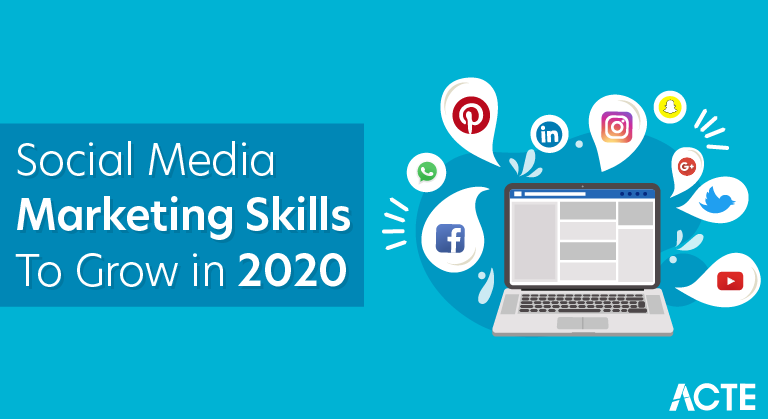
- Every marketer knows that things aren’t what they used to be, and I’m not even talking about the “old days” when traditional print ads and mass media campaigns reigned supreme.
- Consider the continual evolution of the smartphone (which you might be using to read this) or how voice assist is revolutionizing search; not to mention the cloud, machine learning and more.
- Marketing has evolved. So why are you still trying to get leads for your business using outdated methods and tools? It’s the equivalent of releasing a feature film on VHS versus Netflix.
The Changing Face of Marketing
- As another decade whizzes by, studies show marketing skills need to evolve with the times. An IBM report indicates that agile marketing, hyper-personalization through AI and leveraging marketing technology are must-haves for marketers moving forward. Another study conducted by Maryville University also outlined practical skills that marketers need to achieve business growth.
- I’ll be honest — the “to-do” list for marketers can be overwhelming. What these studies show, however, is that inbound marketing and its core components aren’t going anywhere. If anything, you need to leverage inbound methodologies and tools more than ever.
Key Skills to Look for in a Social Media Manager
- Social media managers are an integral part of your marketing team and should have a similar skill set as that of a marketer. Let’s discuss the specific skills and qualities that you should look for in a social media manager.
Copywriting
- A key responsibility of social media managers is to communicate with your audience on behalf of your brand, which makes copywriting a mandatory skill for them to possess.
- A person you hire as your social media manager should have expert copywriting skills that can convey the right message to your audience. Their writing should be creative, engaging, witty, as well as semantic, and grammatically flawless.
Creativity
- Creativity is an important quality for a social media manager. Social media networks are competitive and dynamic platforms where your competitors are actively building their brands using creative content, techniques, and strategies.
- This is why a social media manager needs to have creative skills that they can put to use while creating a social media strategy, sharing content, promoting your products and services, and widening your reach on social media.
- Having creativity skills is a no brainer for the role of a social media manager.
Analytical Thinking
- Analytical thinking is another important skill required to be a social media manager. Social media is a fast-paced dynamic platform where constant learning and modification is required to be successful.
- Social media analytics enable you to review your current strategy and plan your future strategy based on the outcomes of current performance and trends. Hence, analytical thinking is a critical skill for the role of a social media manager to make data-driven decisions.
Trend Savvy
- Social media networks are constantly changing dynamic platforms where new trends go viral every other day. To make sure that your brand can leverage these trends for the maximum ROI, as well as ensure that your brand does not fall back with current trends, it is ideal that the candidate is trend savvy as an individual.
- Social media managers should be aware of current trends in your industry, domain, region, or any other demographic in your audience. They should also be able to align your content strategy with current trends on a real-time basis.
Planning and Strategy
- Like any other marketing function, social media marketing requires strategic planning. A social media manager must have experience in planning a successful, long-term social media marketing strategy.
- The individual should be able to identify clear goals for your social media campaigns that are aligned with your overall marketing goals. The manager must also be flexible and agile to make prompt decisions and create real-time solutions in case of an emergency.
Automating Social Media Processes
- Social media marketing includes a lot of manual and repetitive tasks that can be time-consuming and slightly monotonous. As you continue to grow your audience and move into the new decade, these tasks will continue to grow.
- Hence, your best bet is to automate manual tasks using social media automation tools. Social media automation is another key role for social media managers in 2020.
- They are responsible for making the ultimate use of automation software tools to automate processes such as content publishing, scheduling, analytics, report creation, trend analysis, competitor analysis, and social listening.
Managing Social Media Tools
- There are multiple elements of social media marketing that are managed using social media tools such as social media management, social media automation, content creation, social listening, ads manager, and analytics.
- A primary function of social media managers is to be accountable for all these social media tools.
- This includes their assessment, credential management, billing and subscription, user management, performance analysis, and ROI measurement.
Trend Analysis
- Trend analysis is the process of tracking trends on social media based on domains and industries related to content, strategies, layouts, designs, hashtags, engagement, and platforms. Social media managers are responsible for identifying and tracking these trends using trend analysis tools.
- A social media manager must make optimum use of these trends in real-time while giving out a valuable message. They also need to keep brand content up-to-date with the latest trend in your industry, sharing, news, analysis, reports, surveys results, and so on that the audience will find informative.
Competitor Analysis
- Competitor analysis is a great way to find out what works and what does not in your industry on social media. Hence, performing a competitor analysis is a critical responsibility of a social media manager in 2020.
- For example, a competitor’s failed attempt at sharing graphic memes on LinkedIn helps you avoid making the same mistake, whereas a successful campaign on Twitter using influencer marketing can inspire you to try influencer marketing.
- A social media manager could also understand your competitors’ engaging audience to build personas, understand audience behavior and targeting, and strategize social media marketing activities accordingly.
Social Media Performance Analytics
- Social media analytics is an essential function of a social media manager. It is essential to measure the performance of all your social media marketing efforts against your established goals. It is also required to measure the ROI on your investments in social media marketing.
- Social media managers are responsible for performing timely reviews of campaigns running on social media, which includes measuring the performance of content, targeting, resources, tools, campaigns, ads, and channels.
- They should also be able to make recommendations based on this data about necessary modifications required to the social media strategy.
- For example, if during a mid-campaign review, the social media manager notices that the desired result is not being achieved, he can make modify the copy, graphics, or even the targeting to ensure, campaign goals are met.

Marketing in Messaging Apps Will Level-Up
- Social messaging apps aren’t just for staying in touch with friends and family. Businesses in all industries have taken a significant interest in apps like Facebook Messenger and WhatsApp in recent times, and it’s no surprise when you consider the opportunities:
- 1.3 billion monthly users are active on Facebook Messenger, sending more than 10 billion messages every month.
- WhatsApp has 1.6 billion active users, sending over 55 billion messages every day.
- While traditional channels like email and social media are far from dead, there’s no denying that people are more active on instant messaging apps. In the next 5-7 years, messenger marketing is expected to be the number one marketing channel in the world.
- Therefore, it’s a logical step for brands to start connecting with people on these platforms. Marketing through Facebook Messenger generates 10 to 80 times more engagement than organic posts on the Facebook News Feed.
- Messaging apps allow companies to reach a broad audience with short, personalized texts. 63% of online consumers are more likely to return to a company website if it has a live chat option, hammering home the need for companies to take this channel seriously.
- In 2020, you can expect to see much more marketing in messaging apps, with many companies, including video and interactive content to engage users.
Instagram is a Hit with the Kids
- Instagram’s meteoric rise has already seen it pass one billion users, an impressive achievement. That means it’s one of the most rapidly growing social media platforms and, perhaps more importantly, much of its user base is the coveted younger demographic, especially under 30.
- Facebook is losing much of that cohort, due to its reputation as the social media platform for “old people.”
- One potential problem that marketers should keep in mind is that Instagram recently decided to remove the likes feature from the platform. Many influencers have voiced concerns about this move, and therefore, companies should keep a close eye on the impact this will have in 2020.
- While it could lead to an uptick in content quality, many users may drift away from the platform in search of vanity metrics elsewhere.
Facebook May Be Peaking. Really.
- Facebook is no longer the kingpin in the social media world. According to Forbes, 41% of its users are over the age of 65. While it is by no means struggling, it’s clear that Facebook is losing ground with the younger demographics, who tend to prefer the more visual, interactive experiences offered by Instagram, Snapchat, and the rising star, TikTok.
- After the data breach scandal in 2018, Facebook has lost significant credibility, with many people growing frustrated and resentful with the platform’s proliferation of fake news, political propaganda, and cyberbullying.
- The once-dominant force is continuing to drop in popularity with younger demographics, with TechCrunch speculating that Facebook may be dead to Gen Z.
- It’s essential for future digital marketers to really look at who their target market may be because Facebook may be very unsuitable for some campaigns, especially as it continues to trend downwards with younger people.
- Facebook is still massive, and many Americans continue to check in on it. Still, marketers should be more cautious with who they are trying to connect with and make sure their target audience is still on Facebook. If not, you could be wasting your marketing budget, targeting the wrong social media platform.





